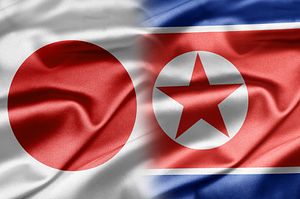The current negotiations between Japan and North Korea in Beijing over the abduction of Japanese citizens in the 1970s and 80s appear to have been a success so far. After resuming talks this week, The Japan News reported Japan’s Chief Cabinet Secretary Yoshihide Suga saying that, due to Pyongyang’s progress, Tokyo will lift some bans on money restrictions and travel, and allow ships from North Korea to enter Japanese ports for humanitarian purposes. This initial success for the negotiations was not unexpected, and simply highlights how isolated the two countries have been from one another. The potential for further cooperation will be what is watched closely, to see whether Japan and North Korea actually intend to move their relations toward a position of détente, or possibly even normalization.
On Tuesday, the delegation from Pyongyang put forward its plan to organize an investigative panel, after which the Japanese side expressed its satisfaction with the panel’s scope and authority. According to a Japanese official in Beijing who spoke with the Nikkei Asian Review, “The special investigative committee will be quite large, and its chair is close to First Secretary Kim Jong Un and is a member of the National Defense Commission, the key government body that has the authority to issue instructions to all other entities.” Japan was also presented with a list containing the names of at least 10 Japanese nationals (written in Korean) believed to be living in North Korea, who are also suspected of having been kidnapped. The list also includes personal histories, which Tokyo plans to compare with its own lists of abductees.
In response to North Korea’s progress, Japan has planned to lift travel restrictions for its citizens in North Korea, and vice versa. North Korea’s ships will only be allowed to enter Japanese ports for humanitarian reasons, so Pyongyang’s Mangyongbong-92 ferry is still restricted. However, Tokyo will remove the requirement for reporting the transport of more than 100,000 yen ($975) between countries in cash, or more than 3 million yen by wire. Prime Minister Shinzo Abe’s Cabinet is expected to approve the deal by Friday if the termination of sanctions is settled on Thursday.
Barring an unexpected North Korean provocation, Abe seems intent on signing off on this initial step. According to the Japan Times, Abe told reporters “We have concluded that an unprecedented scheme that can make national decisions has been established. In accordance with the principle of action for action, we will lift some of the measures taken by Japan.” He did make the caveat however that this was only the beginning, and that Japan would continue to do its utmost to bring the issue to a close.
The number of people included on North Korea’s list does not appear to be an issue right now, as Japanese government sources said on June 14 that Tokyo wanted Pyongyang to prioritize 12 people it had officially not returned, as well as 77 others it believes were highly likely to have been abducted. Overall Japan has a list of 860 missing persons that it wants North Korea to investigate. For now Japan appears content with the amount of information it has been provided and the size and authority of the investigative committee assigned to look into the abductees whereabouts.
It is not exactly clear where these negotiations will go next, assuming that North Korea continues to be cooperative and that the issue of the abductees, if not completely resolved to Japan’s satisfaction, is taken far enough to give Abe a substantial political victory at home. While there would still be room for the two countries to reach an agreement over the further easing of trade restrictions and possibly Japanese investment, once a framework for negotiation is laid by these talks, the path toward reaching that phase is very murky. Coincidentally, Japan’s head delegate to the talks, Junichi Ihara, met with the director general of the Chinese Foreign Ministry’s Asian Affairs Department, Kong Xuanyou, on Tuesday. While no details were released, the two are believed to have discussed the possibility of a bilateral summit, which was hinted at last week when Chinese officials said there could be a possible sideline summit between Chinese President Xi Jinping and Abe at the Asia-Pacific Forum in November.
Not every set of negotiations has a clear end-game. Even if both Japan and North Korea are legitimately interested in further strengthening ties, there is no telling what might happen in the intervening weeks (or months) in the region to throw their plans off track. For now, the negotiations appear to have such a low cost that both sides are willing to see where they might lead. Already Japan has used them to open channels into its badly damaged relationship with China. North Korea may be on a similar fishing expedition, exploring its options in a region that is extremely hostile towards it. Both sides have been careful not to let North Korea’s recent missile tests or Japan’s new interpretation of collective self-defense derail their negotiations. Those issues would normally be enough to draw a significant denunciation from the opposite side. The fact that they haven’t suggests the abductees may not be the end of this process.

































